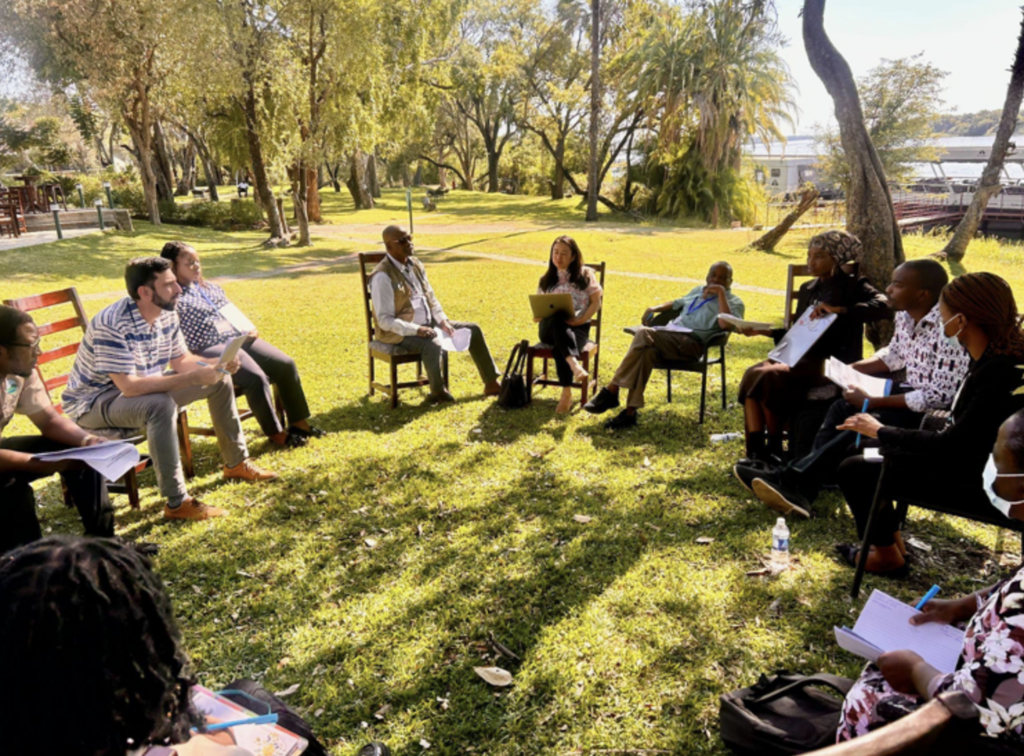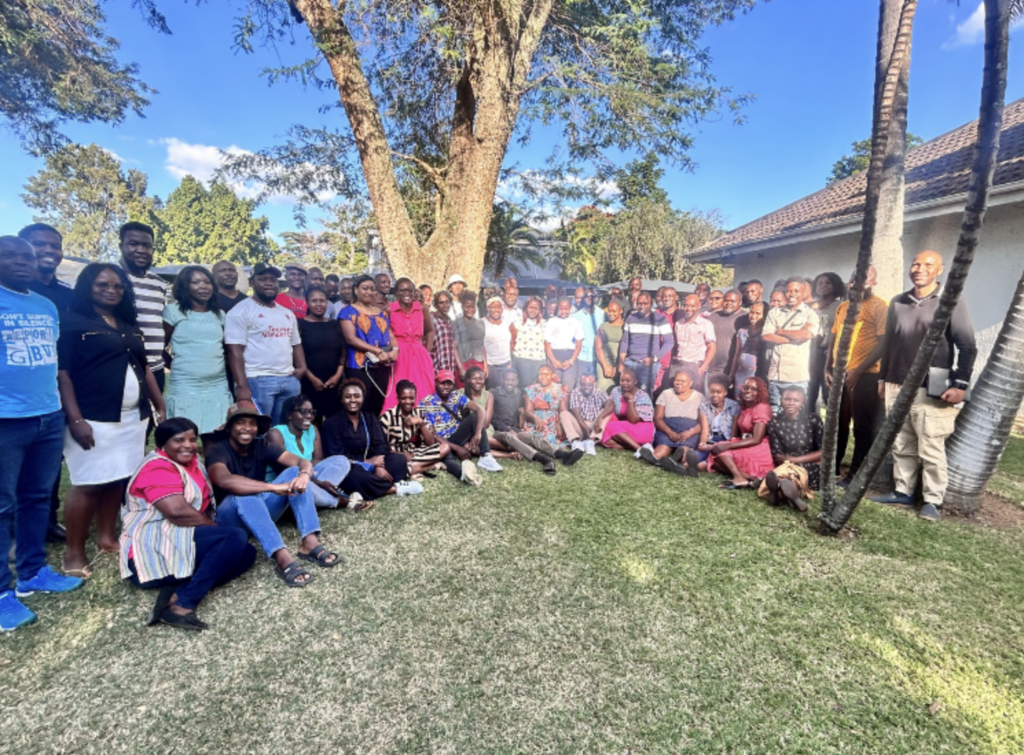Tackling Vaccine Hesitancy with Empathy: Zimbabwe’s Health Ambassadors Embrace Innovative Dialogue
Fortunate Machingura and Leslie Nyoni
In a Bulawayo suburb, Chipo has been working as a community health worker (CHW) since 2010, promoting public health while navigating both technology and tradition. With a megaphone in hand, she disseminates crucial health information in neighborhoods, announcing vaccination campaigns, and informing residents about essential health services and advice with flyers.
Bustling urban centers in Zimbabwe, like Harare and Bulawayo, are fertile ground for innovative public health approaches—but also for the spread of both vaccine-preventable diseases and inaccurate information about those diseases and their prevention. Navigating Bulawayo, Chipo encounters many people glued to their phones, an expected sight since Zimbabwe’s urban centers have young populations and high internet and smartphone penetration. Almost 9 in 10 households in these cities have a smartphone. She also finds significant populations of Pentecostals and Traditional Apostolic, groups historically associated with vaccine hesitancy in part because they prioritize spiritual healing.

Chipo’s challenges
To reach these audiences, Zimbabwe boasts a robust community health worker (CHW) program, with CHWs like Chipo acting as pivotal connectors between communities and healthcare facilities. The Zimbabwe CHW program dates back to the 1980s, playing a critical role in achieving good health outcomes, such as patient follow-ups, health education, and organizing vaccination drives, and has contributed immensely in major gains in the country’s health sector, including significantly reducing in the maternal mortality rates in 2007–2008.
Despite deep connections with the community, CHWs face increasing challenges with vaccination. While childhood immunization rates are high, follow-through on later doses presents a stumbling block, and Covid-19 has triggered new conversations and concerns. Doubts include questioning the efficacy of vaccines in disease prevention to fears of potential adverse effects. A colleague of Chipo’s says her patients “tell me that they are not sure if the vaccines will work in preventing diseases or they will kill them,” highlighting deep-seated concerns among the population.
CHWs do not always feel prepared to address these new concerns. Their training covers a broad range of roles and responsibilities from prevention and health promotion to treating common conditions (including diarrhea and malaria) and identifying and referring complicated cases to higher levels of the health system. Their training does not, however, systematically build key interpersonal communication skills to influence protective health decisions, in part by lowering the decision costs associated with making tough health decisions.
Becoming a Health Ambassador
To build effective, empathetic interpersonal communication skills, Chipo recently attended a training workshop to become a Health Ambassador. Part of the Social Science Research Council’s Mercury Project, the Health Ambassador program is an experimental, strategic initiative designed to address vaccine hesitancy in urban Zimbabwe as well as in Cote d’Ivoire, Malawi, and Senegal. Building on the AIMS methodology, the Health Ambassador intervention is designed to strengthen and leverage the expertise and trust of CHWs to enhance vaccine confidence and uptake through empathetic, personalized communication strategies. In Zimbabwe, the Health Ambassadors initiative is spearheaded by the Ministry of Health and Childcare’s city health departments of Harare and Bulawayo, in collaboration with the Centre for Sexual Health and HIV/AIDS Research Zimbabwe (CeSHHAR Zimbabwe). Consistent with government priorities, Health Ambassadors will focus on building trust and uptake in a range of vaccines, including Covid-19, cholera, typhoid, HPV, and Hepatitis B.
Empathetic communication is key to building trust and, ultimately, changing health behaviors, particularly in areas resistant to traditional health messaging. The question is how to best-equip CHWs with such skills. Feedback from the Health Ambassadors training sessions suggests that, like many of us, building communication skills takes intentional effort. One CHW explained, “We seldom reflect on how we communicate. The messaging approach is often one-way; nobody takes the time to mirror, and yes, this is where the problem lies. Without empathy and understanding, how can we expect real communication?”

At the training, Chipo and her colleagues learned about the AIMS methodology: Announce, Inquire, Mirror, Secure. In the near future, Chipo is poised to emerge as a catalyst for transformative health dialogue, ready to facilitate the way healthcare conversations unfold within homes. The AIMS methodology, her strategic tool, promises to navigate the rich fabric of cultural traditions and personal beliefs. This approach, nurtured by Irimi, aims to elevate ordinary health discussions into insightful and meaningful exchanges, in line with the World Health Organization’s goal of customizing immunization conversations.
Imagine Chipo, walking along the streets of her neighborhood, approaching a local homestead with the warm, familiar air of Zimbabwean kinship. She greets a family with the traditional “Makadii,” before shifting into her role as a health educator.
Announce: Within the family’s living space, with walls adorned with colorful tapestries, Chipo will speak with authority and care. “Soon, our community will benefit from new vaccines, endorsed by WHO, that bring the promise of health and well-being,”she will assert, her voice carrying the weight of positive change.
Inquire: As she sits on a hand-woven reed mat, facing a mother cradling her infant, Chipo’s questions will be gentle yet direct, “What are your thoughts on vaccination?”Her inquiry, respectful of the mother’s wisdom, invites a dialogue steeped in mutual respect.
Mirror: Hearing the mother express concerns about the vaccine’s novelty, Chipo will nod thoughtfully. “Understanding is the pathway to trust. It’s perfectly reasonable to question what’s new to us,” she will affirm, her words mirroring the mother’s apprehensions within the safe bounds of their shared understanding.
Secure: To cement this newfound connection, Chipo will offer reassurance grounded at the intersection between scientific evidence and communal wisdom. “Each vaccine undergoes rigorous testing, much like the herbal remedies passed down in our families. The mild side effects are small compared to the protection they offer our children from diseases we know all too well,”she will explain, bridging the old with the new.
In this intimate household setting, Chipo’s application of AIMS methodology, infused with the nuances of Zimbabwean socio-cultural norms, is not just a conversation; it’s a moment of learning, understanding, and community building that resonates with her people. Chipo’s colleagues are enthusiastic about the potential of structured, two-way communication. One looks forward to engaging “in actual conversations with people in their homes,” predicting it “will provide significant insights and assist us in planning tailored vaccination campaigns that can enhance knowledge and subsequently increase uptake.” Another, felt he had “a new way to communicate with people in my community.” He went on: “I believe this will deepen my understanding of their emotions and feelings. Health issues are sensitive, and knowing how to acknowledge the community’s feelings during conversations greatly contributes to building trust in vaccines.”
Testing the approach
But while the Health Ambassador approach—including using AIMS—is promising and appealing to CHWs and city health departments, its real-world effect on vaccine uptake and confidence is not known. If the trial provides productive results, Zimbabwe ‘s Ministry of Health, through city health departments, has expressed interest in expanding the AIMS approach to other CHWs. This is why we are engaged in a rigorous evaluation, leveraging a community-based, cluster-randomized trial. We are measuring actual vaccination and vaccine trust; we will have early lessons to share by August 2024.
At CeSHHAR, engagement in this project has enabled us to think more strategically about how implementation science can be utilized to promote immediate and strategic research. Furthermore, this approach allows us to compare and contrast Anglophone and Francophone health sectors in Africa, providing platforms for further collaborations to strengthen health systems in Africa.
As part of the Mercury Project, we have forged additional connections. For example, Mercury Project program directors introduced us to Irimi to develop our intervention. We have been able to meet with the wider Health Ambassadors team as well as the other seventeen teams in the wider consortium, including in a trip to Washington, DC, in May 2023. The Washington meeting allowed us to improve the Health Ambassadors communication methodology to include the AIMS approach into the trial, distinguishing it from other CHW centered interventions.
Back in Zimbabwe, we are appreciative of and inspired by CHWs like Chipo who participated in our training and will put the AIMS approach into action, strengthening primary health care. This effort reflects the convergence of communication science in the more expansive global pursuit of solutions that improve confidence and trust in evidence-based science. Regardless of the exact results, each team will learn critical lessons from this work, and we will each regularly converse with relevant government officials about our insights. Health Ambassadors have the potential to be the forerunners of change, transforming skepticism into belief and reluctance into action. Guided by scientific rigor and genuine care, Health Ambassadors are not merely advocates for science, they are the vanguards heralding a new era in public health communication at the community level, one heartfelt conversation at a time.

Fortunate Machingura is the Zimbabwe Principal Investigator for the SSRC-funded, multicountry cluster randomized control trial to curb vaccine hesitancy implemented in Zimbabwe, Malawi, Côte d’Ivoire, and Senegal (the Mercury Project called Health ambassadors). She holds a PhD in policy and is the director for climate, environment, and health at CeSHHAR Zimbabwe, as well as lecturer at the Liverpool School of Tropical Medicine. Her research is at the forefront of examining climate change’s influence—particularly heat—on the health of rural African women during and after pregnancy and on newborns, informing policy and shaping localized heat response strategies. Machingura will chair the first International Conference on Climate and Health Africa, slated for October 29-31, 2024 in Harare, Zimbabwe

Leslie Nyoni is a research coordinator at CeSHHAR, where he spearheads the field operations in Zimbabwe for the SSRC-funded, multicountry cluster randomized control trial. This trial, designed to mitigate vaccine hesitancy, is being implemented across Zimbabwe, Malawi, Côte d’Ivoire, and Senegal. Nyoni’s research interests lie at the nexus of climate and health. He is particularly keen on exploring how communication tools, such as the AIMS methodology, can be leveraged by community health workers to effectively discuss the repercussions of climate on health and inspire community engagement.

